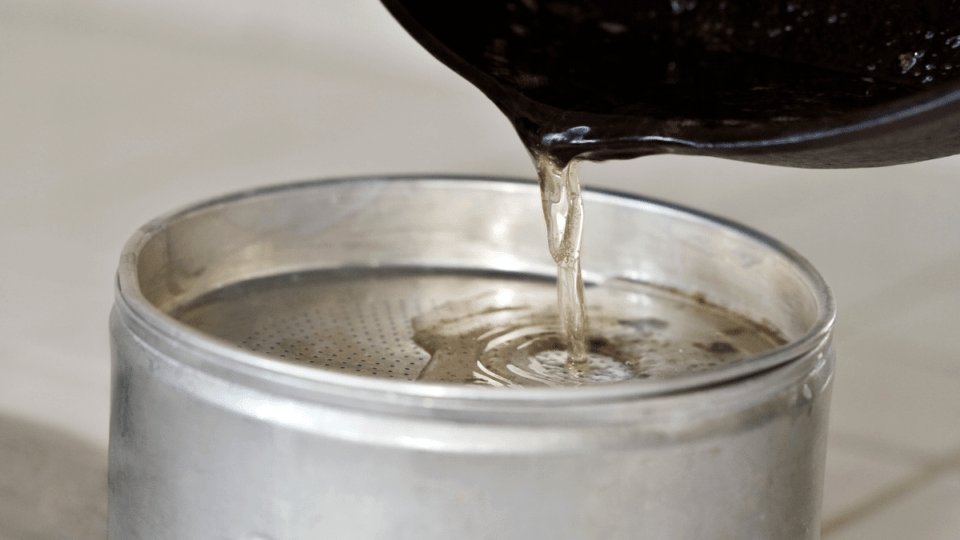Do you notice a strong, unpleasant odor emanating from your bathroom or kitchen? It’s possible that it is coming from your drain.
Homeowners often have a problem with smelly drains. Your drains will smell no matter how careful or thorough you are about what you put down the drains. It is better to deal with the smell immediately, rather than wait for it to worsen.
You can find a few ways to get rid of the foul odor from your drains.
You will need some things if you want to DIY.
- Boil water
- Distilled white vinegar
- Baking soda
- Salt
- Lemon juice
This blog will explain how to deal with these household items as well as what you can do to remove the unpleasant smell from your drains. We will even explain what is causing the awful smell.
What is the cause of a foul-smelling drain?
Shower drains and sinks can develop unpleasant odors over time due to various problems inside.
The following are the most common reasons for stinky drains:
- Bacteria and gunk. Food, hair, grease, and soap particles can all clog your drains over the years. This can lead to bacteria that can produce a stench.
- Sewer gases: The P trap is the U-shaped pipe that runs under your bathroom sink. It should always have water. The smelly sewer gases that rise from drains can be emitted by empty or dry P-traps, which pose a risk to your health. This is most common in sinks that are not used often.
- Blocked vents: Some plumbing systems have vents that allow trapped gases to flow through the pipes and out to the outside. They then dissipate and leave behind no unpleasant odor. These gases can leak through your drains if your vent is blocked.
Solution 1: Boil water
Boiling hot water is a powerful tool. Sometimes all you need to flush your drain is hot water. Sometimes, the heat of boiling water can be sufficient to flush out any gunk or odors.
These are the steps to follow:
- Bring a small saucepan of water to a boil.
- Half of the pot of boiling water should be poured down the drain.
- Allow the hot water to flush out any food particles and gunk stuck in your drain for a few moments.
- Pour cold water down the drain, to clean the pipe and remove any gunk.
- The rest of the boiling water should be poured down the drain.
Solution 2: Distilled white wine vinegar
Vinegar is an excellent remedy to keep your drains clear and clean. Heating vinegar is a great way to make it more effective. The vinegar’s acetic acid neutralizes the source of the odor. The vinegar is able to penetrate grease easily and has disinfecting properties.
These are the steps to follow:
- Four cups of white vinegar should be heated until it comes to a boil.
- Half of the water should be poured down the drain. Let the water run for approximately 60 seconds.
- Continue the process with the rest of the hot vinegar.
This technique is able to clear any drain clogs, which are usually what causes those unpleasant odors.
Solution #3: Baking soda, salt
Baking soda can make a big difference in drain efficiency and smell. Baking soda and salt can be combined to effectively eliminate odors from drains.
These steps will ensure you get the best results.
- One cup of baking soda should be poured down the drain.
- Put 1/2 cup salt down the drain.
- Allow the mixture to sit for a while (or overnight, if it is a hard clog).
- Bring two cups of water to a boil. Pour the water into a drain.
Hot water flushes out all of the residue and debris.
Solution #4: Baking soda and lemon juice
Combining this combination can make your drains look and smell fresher. Natural citric acid is found in lemons. Mixing lemon juice with baking soda will create foam, which can be used to remove clogs from drains.
These are the steps to follow:
- Put 1/2 cup of baking soda down the sink.
- You can also pour 1/2 cup of lemon juice down the sink.
- Turn on the water supply and wait for the solution to work for at least one hour.
- Then run the hot water through the drain.
The hot water flushes out all gunk and residue that may have accumulated during the process, as we’ve already mentioned.

